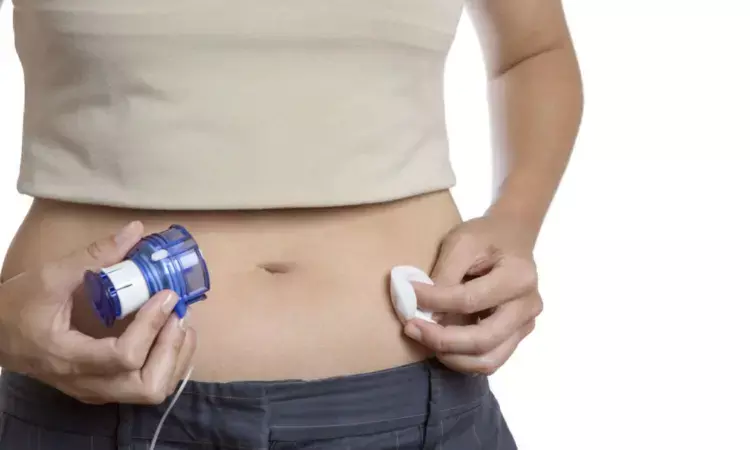- Home
- Medical news & Guidelines
- Anesthesiology
- Cardiology and CTVS
- Critical Care
- Dentistry
- Dermatology
- Diabetes and Endocrinology
- ENT
- Gastroenterology
- Medicine
- Nephrology
- Neurology
- Obstretics-Gynaecology
- Oncology
- Ophthalmology
- Orthopaedics
- Pediatrics-Neonatology
- Psychiatry
- Pulmonology
- Radiology
- Surgery
- Urology
- Laboratory Medicine
- Diet
- Nursing
- Paramedical
- Physiotherapy
- Health news
- Fact Check
- Bone Health Fact Check
- Brain Health Fact Check
- Cancer Related Fact Check
- Child Care Fact Check
- Dental and oral health fact check
- Diabetes and metabolic health fact check
- Diet and Nutrition Fact Check
- Eye and ENT Care Fact Check
- Fitness fact check
- Gut health fact check
- Heart health fact check
- Kidney health fact check
- Medical education fact check
- Men's health fact check
- Respiratory fact check
- Skin and hair care fact check
- Vaccine and Immunization fact check
- Women's health fact check
- AYUSH
- State News
- Andaman and Nicobar Islands
- Andhra Pradesh
- Arunachal Pradesh
- Assam
- Bihar
- Chandigarh
- Chattisgarh
- Dadra and Nagar Haveli
- Daman and Diu
- Delhi
- Goa
- Gujarat
- Haryana
- Himachal Pradesh
- Jammu & Kashmir
- Jharkhand
- Karnataka
- Kerala
- Ladakh
- Lakshadweep
- Madhya Pradesh
- Maharashtra
- Manipur
- Meghalaya
- Mizoram
- Nagaland
- Odisha
- Puducherry
- Punjab
- Rajasthan
- Sikkim
- Tamil Nadu
- Telangana
- Tripura
- Uttar Pradesh
- Uttrakhand
- West Bengal
- Medical Education
- Industry
Type 1 diabetes: Extended-insulin infusion set worn for 7 days safe with high satisfaction rate

USA: The use of a new extended-wear infusion set (EIS) for 7 days in patients with type 1 diabetes was shown to be safe with high patient satisfaction, and without any adverse impact on glycemic control, a recent study has revealed. The study appeared in the journal Diabetes Technology & Therapeutics.
Insulin infusion sets (IISs) provide rapid-acting insulin analogs from the pump reservoir to the SC space through a Teflon cannula or a stainless steel needle held intact on the skin by an adhesive patch. Standard IISs need to be replaced every 2 to 3 days to prevent or reduce adverse events regardless of the rapid-acting insulin used. However, continuous glucose monitoring (CGM) systems often used along with CSII pump therapy can function for ≥7 days before a change in a sensor.
Against the above background, Ron Brazg, Rainier Clinical Research Center, Renton, Washington, USA, and colleagues aimed to investigate the safety and performance of a new extended-wear infusion set when used for 7 days by adults with type 1 diabetes in a single-arm, nonrandomized trial.
Adults aged 18–80 years of age with type 1 diabetes who used insulin aspart and the EIS or MiniMed 670G system with insulin lispro for up to 7 days, across 12 consecutive wears were enrolled.
Incidence of serious adverse events (SAEs), unanticipated adverse device effects (UADEs), serious adverse device effects (SADEs), severe hyperglycemia (SevHyper), severe hypoglycemia (SevHypo), skin infection, and diabetic ketoacidosis (DKA) were the safety endpoints.
The researchers also determined the EIS failure rate due to unexplained hyperglycemia, glycemic control outcomes, the overall survival rate of EIS, satisfaction with the EIS, and total daily insulin delivered.
Salient findings include:
- The intention to treat population consisting of 259 adults, 48% were men) wore a total of 3041 EIS devices.
- No UADE, SADE, or DKA events were seen.
- Overall rates of SevHypo, SAEs, SevHyper, and skin infection were 2.5, 3.8, 104.1, and 20.1 events per 100 participant-years.
- Th EIS failure rates due to unexplained hyperglycemia at the end of day 7 for insulin lispro and aspart use was respectively 0.1% and 0.4%.
- At the end of day 7, overall EIS survival rate was 77.8%, there was no change in glycemic control, and participants reported greater satisfaction with the EIS compared with standard IISs worn before the study.
"The opportunities for the advancement of IIS technology have not only included extending the IIS wear duration but also maintaining glycemic control while reducing adverse events across wear duration," the researchers wrote.
"In this study, the Medtronic extended infusion was safely worn for up to 7 days by adults without adversely affecting glycemic control and with favorable user satisfaction," they conclude.
Reference:
Ron Brazg, Satish K. Garg, Anuj Bhargava, James R. Thrasher, Kashif Latif, Bruce W. Bode, Timothy S. Bailey, Barry S. Horowitz, Arvind Cavale, Yogish C. Kudva, Kevin B. Kaiserman, George Grunberger, John Chip Reed, Sarnath Chattaraj, Gina Zhang, John Shin, Vivian Chen, Scott W. Lee, Toni L. Cordero, Andrew S. Rhinehart, Robert A. Vigersky, and Bruce A. Buckingham.Evaluation of Extended Infusion Set Performance in Adults with Type 1 Diabetes: Infusion Set Survival Rate and Glycemic Outcomes from a Pivotal Trial.Diabetes Technology & Therapeutics.Aug 2022.535-543.
Dr Kamal Kant Kohli-MBBS, DTCD- a chest specialist with more than 30 years of practice and a flair for writing clinical articles, Dr Kamal Kant Kohli joined Medical Dialogues as a Chief Editor of Medical News. Besides writing articles, as an editor, he proofreads and verifies all the medical content published on Medical Dialogues including those coming from journals, studies,medical conferences,guidelines etc. Email: drkohli@medicaldialogues.in. Contact no. 011-43720751


